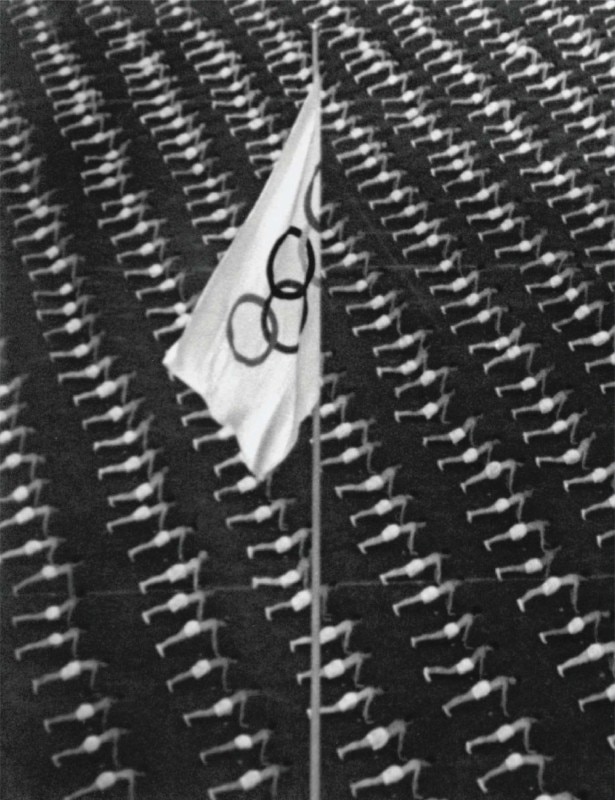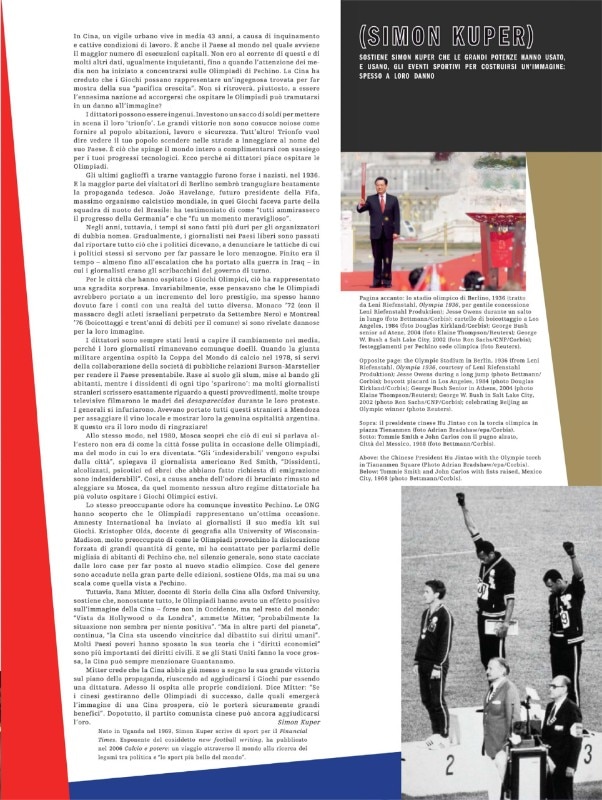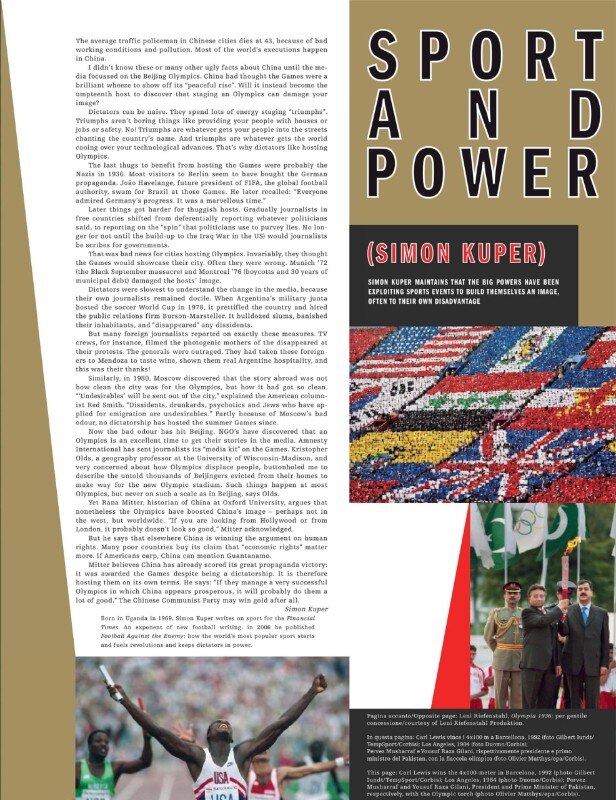In 2008, the Olympic Games were approaching, and the event with which China wanted to stand out as a leading actor of world civilization became instead an opportunity to draw the attention of the world itself to the systematic violations of human rights perpetrated in the country.
Fourteen years before a World Cup edition that is being globally contested for the extremely high price in terms of human lives and violated rights paid for its realisation, Simon Kuper, an emergent signature of new football writing, investigated in Domus issue 916 (July 2008) the role of the media in deconstructing the narratives associated by totalitarian regimes with major sport events.
Sport and power
The average traffic policeman in Chinese cities dies at 43, because of bad working conditions and pollution. Most of the world’s executions happen in China. I didn’t know these or many other ugly facts about China until the media focussed on the Beijing Olympics. China had thought the Games were a brilliant wheeze to show off its “peaceful rise”. Will it instead become the umpteenth host to discover that staging an Olympics can damage your image?

Dictators can be naive. They spend lots of energy staging “triumphs”. Triumphs aren’t boring things like providing your people with houses or jobs or safety. No! Triumphs are whatever gets your people into the streets chanting the country’s name. And triumphs are whatever gets the world cooing over your technological advances. That’s why dictators like hosting Olympics. The last thugs to benefit from hosting the Games were probably the Nazis in 1936. Most visitors to Berlin seem to have bought the German propaganda. João Havelange, future president of FIFA, the global football authority, swam for Brazil at those Games. He later recalled: “Everyone admired Germany’s progress. It was a marvellous time.” Later things got harder for thuggish hosts. Gradually journalists in free countries shifted from deferentially reporting whatever politicians said, to reporting on the “spin” that politicians use to purvey lies. No longer (or not until the build-up to the Iraq War in the US) would journalists be scribes for governments.

That was bad news for cities hosting Olympics. Invariably, they thought the Games would showcase their city. Often they were wrong. Munich ’72 (the Black September massacre) and Montreal ’76 (boycotts and 30 years of municipal debt) damaged the hosts’ image. Dictators were slowest to understand the change in the media, because their own journalists remained docile. When Argentina’s military junta hosted the soccer World Cup in 1978, it prettified the country and hired the public relations firm Burson-Marsteller. It bulldozed slums, banished their inhabitants, and “disappeared” any dissidents. But many foreign journalists reported on exactly these measures. TV crews, for instance, filmed the photogenic mothers of the disappeared at their protests. The generals were outraged. They had taken these foreigners to Mendoza to taste wine, shown them real Argentine hospitality, and this was their thanks!

Similarly, in 1980, Moscow discovered that the story abroad was not how clean the city was for the Olympics, but how it had got so clean. “‘Undesirables’ will be sent out of the city,” explained the American columnist Red Smith. “Dissidents, drunkards, psychotics and Jews who have applied for emigration are undesirables.” Partly because of Moscow’s bad odour, no dictatorship has hosted the summer Games since. Now the bad odour has hit Beijing. NGO’s have discovered that an Olympics is an excellent time to get their stories in the media. Amnesty International has sent journalists its “media kit” on the Games. Kristopher Olds, a geography professor at the University of Wisconsin-Madison, and very concerned about how Olympics displace people, buttonholed me to describe the untold thousands of Beijingers evicted from their homes to make way for the new Olympic stadium. Such things happen at most Olympics, but never on such a scale as in Beijing, says Olds.

Yet Rana Mitter, historian of China at Oxford University, argues that nonetheless the Olympics have boosted China’s image – perhaps not in the west, but worldwide. “If you are looking from Hollywood or from London, it probably doesn’t look so good,” Mitter acknowledged. But he says that elsewhere China is winning the argument on human rights. Many poor countries buy its claim that “economic rights” matter more. If Americans carp, China can mention Guantanamo. Mitter believes China has already scored its great propaganda victory: it was awarded the Games despite being a dictatorship. It is therefore hosting them on its own terms. He says: “If they manage a very successful Olympics in which China appears prosperous, it will probably do them a lot of good.” The Chinese Communist Party may win gold after all.

Natural stone is an eternal material
Now in its 59th edition, Marmomac returns to Verona from September 23 to 26 to showcase the role of stone in contemporary design.



